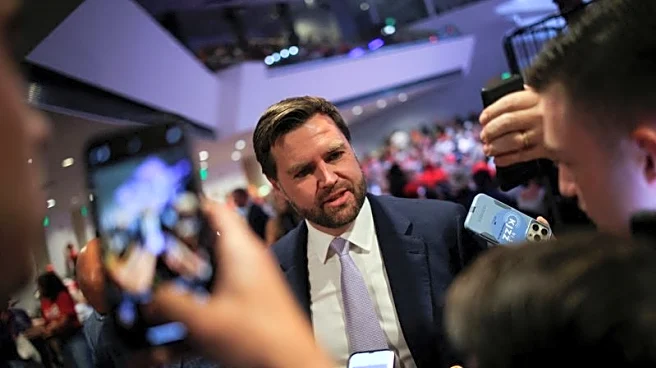What's Happening?
Amazon One Medical has announced the launch of a pay-per-visit virtual healthcare service specifically for children aged 2 to 11. This service offers message-based visits starting at $29 and video visits at $49,
without requiring insurance or a One Medical membership. It aims to address common pediatric issues such as pink eye, lice, and various skin conditions, as well as medication renewals for EpiPens and asthma. This initiative follows Amazon's introduction of a similar service for adults in 2024. According to Natasha Bhuyan, MD, the service is designed to complement existing pediatric care by providing convenient, on-demand access for urgent concerns.
Why It's Important?
The introduction of Amazon's virtual healthcare service for children signifies a significant expansion in the company's healthcare offerings, potentially disrupting traditional pediatric care models. As major retail health providers like Walgreens, CVS, and Walmart scale back their services, Amazon's move could fill a growing gap in accessible healthcare. This development may impact brick-and-mortar pharmacies, which are already facing closures, as Amazon's prescription vending machines offer a convenient alternative for obtaining medications. The expansion into pediatric care could further solidify Amazon's position in the healthcare sector, challenging existing providers and reshaping consumer expectations.
What's Next?
Amazon's continued expansion into healthcare services suggests potential further developments in virtual care offerings. The company may explore additional age groups or conditions to cover, enhancing its competitive edge in the healthcare market. Stakeholders such as traditional healthcare providers and pharmacies may need to adapt to this evolving landscape, possibly by enhancing their own digital services or forming strategic partnerships. The broader healthcare industry will likely monitor Amazon's progress closely, assessing the impact on patient care standards and market dynamics.
Beyond the Headlines
Amazon's venture into virtual healthcare for children raises questions about the ethical implications of digital health services, particularly concerning data privacy and the quality of care provided remotely. As the company integrates more technology into healthcare, it may face scrutiny over how patient information is managed and the potential for disparities in access to care. Long-term, this shift could influence cultural perceptions of healthcare delivery, emphasizing convenience and technology-driven solutions.










